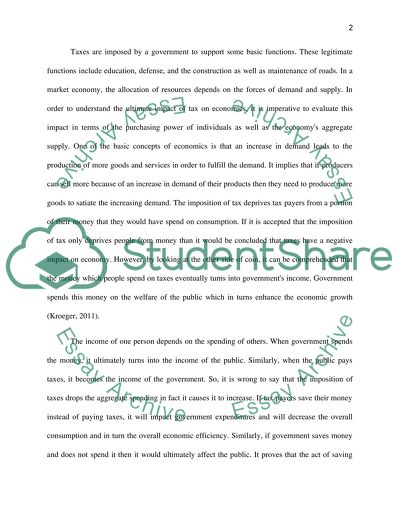Cite this document
(“How Taxes Affect Economic Efficiency Essay Example | Topics and Well Written Essays - 1500 words”, n.d.)
Retrieved from https://studentshare.org/macro-microeconomics/1432227-how-taxes-affect-economic-efficiency
Retrieved from https://studentshare.org/macro-microeconomics/1432227-how-taxes-affect-economic-efficiency
(How Taxes Affect Economic Efficiency Essay Example | Topics and Well Written Essays - 1500 Words)
https://studentshare.org/macro-microeconomics/1432227-how-taxes-affect-economic-efficiency.
https://studentshare.org/macro-microeconomics/1432227-how-taxes-affect-economic-efficiency.
“How Taxes Affect Economic Efficiency Essay Example | Topics and Well Written Essays - 1500 Words”, n.d. https://studentshare.org/macro-microeconomics/1432227-how-taxes-affect-economic-efficiency.


